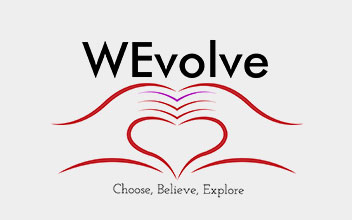
In the Bible, the book of Habakkuk Chapter 2:1-3, it reads, I will climb up to my watchtower and stand at my guardpost. There I will wait to see what the Lord says and how he will answer my complaint. Then the Lord said to me, “Write my answer plainly on tablets, so that a runner can carry the correct message to others. This vision is for a future time. It describes the end, and it will be fulfilled. If it seems slow in coming, wait patiently, for it will surely take place. It will not be delayed”. [NLT]
This biblical passage may sound familiar to you. If not, we encourage you to read the verse along with other verses surrounding it for full context. We find this to be a great reference to briefly discuss goal setting.
Every year it never fails, if for no other time the transition from December 31st to January 1st of a new year prompts us to think about goal setting. If we’re being honest with ourselves, many of those goals are short lived and not sustainable. Many of those goals are way too ambitious and are not SMART – Specific, Measurable, Attainable, Relevant and Time-bound.
Goal setting is an extremely important exercise if you want to unleash and maximize your full potential. It’s a great way to track your personal development and provide a written account of your life journey. Goal setting helps you to calibrate, in other words fine tune your strategic steps to ensure that you reach a desired outcome of achievement.
We have not always been consistent with our goal setting but we understand the importance of doing so as individuals, as a couple and as a family. We have also experienced the benefits of goal setting as we have felt satisfaction in attaining some goals while learning that other goals require additional work and effort thus challenging us to answer the question of what additional steps are needed to get there?
From our individual and collective experience, here are a few key points we’d like to share around goal setting:
- Like the Bible verse says, write the vision and make it plain. Your vision, your goal won’t be realized unless you first get it down on paper. Your goal doesn’t need to be complex. Make it plain. In other words, keep it simple so it doesn’t become intimidating to where you lose enthusiasm to attain it.
- Small steps lead to big steps. This is where the SMART criteria comes into play [see above]. Make sure to outline the steps of your goals so that they are “do-able” and you can easily see your progress. Seeing your progress will encourage you to keep pressing forward.
- Find an accountability partner. Having someone to motivate you, remind you and challenge you to work toward attaining your goals cannot be overstated. You can task that person with checking in on you to make sure you are doing what you’ve set out to do.
- Don’t be discouraged if you don’t reach your goal. While goal setting and putting a plan in place is a part of the journey, you must leave room for the possibility that the journey could develop some twists and turns such that you don’t attain your goal within the time you’ve allowed. That is okay! This is where you calibrate the particulars about your goal to ensure ultimate success. Don’t discount the valuable lessons that can be learned along the way as you strive to reach your goal.
- Keep your goals in front of you. In other words, after getting your goals in place, keep them in a conspicuous place where you can easily view them. It does no good to create goals and then keep them tucked away hidden. When using your navigation system while driving, after entering the destination address, do you close the screen? Probably not. Goal setting is no different as it is a map used along your journey to attain your goal destination.
Be sure to leave us a comment and share your perspective!
- Have you ever set goals for yourself before?
- What are some of the steps you take to set goals?
- How have goals impacted your success both personally and professionally?
- What advantages/disadvantages have you experienced when setting goals?
